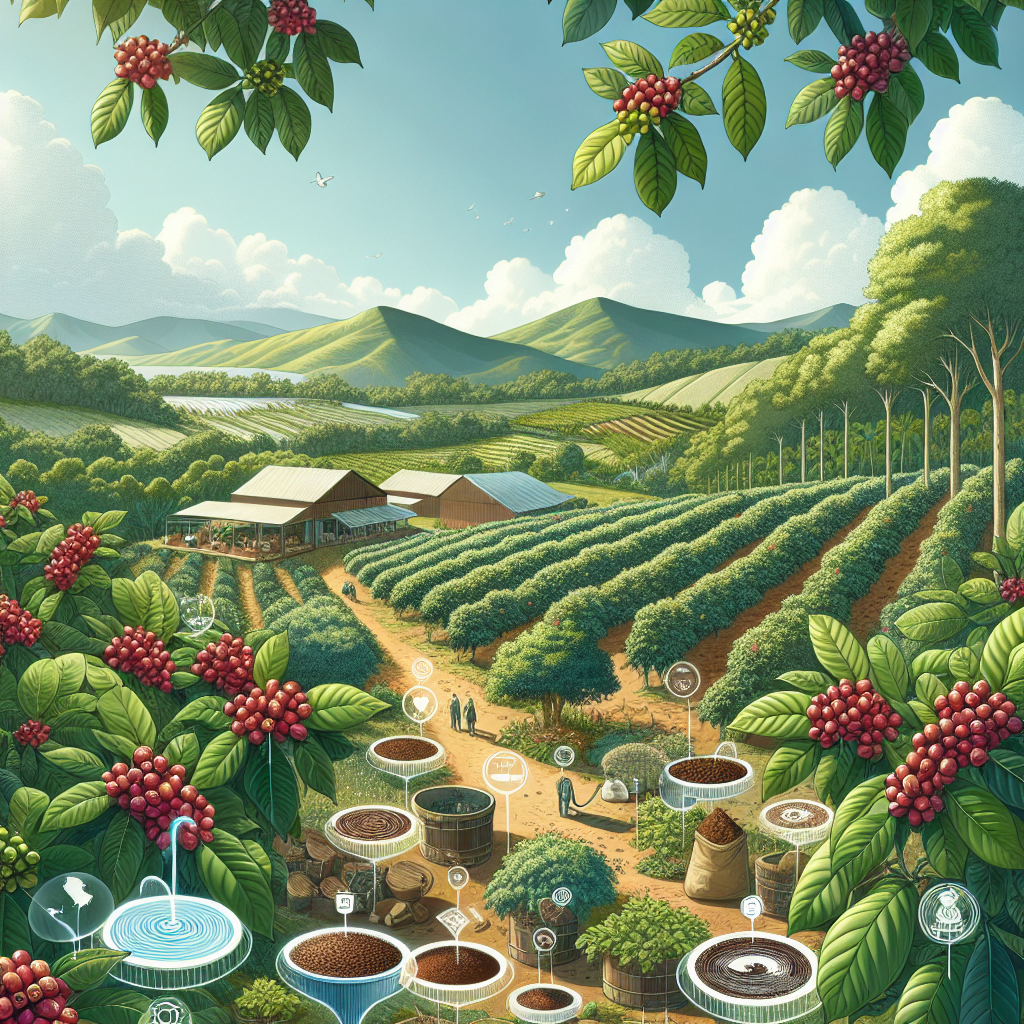Get ready to embark on a caffeinated adventure as you explore the captivating world of coffee on Caffeinated Blogging. From brewing techniques to discovering the stories behind different coffee beans, this blog is your go-to destination for all things coffee. Not only will you gain insights into home roasting and uncover the intriguing relationship between coffee and wellness, but you’ll also immerse yourself in global coffee culture and learn barista skills and training. Plus, stay updated with the latest coffee gadgets and accessories. But before we dive into the holistic benefits of coffee and understanding the impact of Fair Trade Coffee, join us on this exhilarating journey that celebrates coffee as more than just a beverage, but as an experience, a culture, and a community. Your coffee journey awaits, right here on Caffeinated Blogging.
Fair Trade Coffee: Understanding Its Impact
Welcome to Caffeinated Blogging, your go-to source for all things coffee. In this comprehensive article, we will be diving deep into the world of fair trade coffee and exploring its impact on the environment, society, and the economy. So grab a cup of your favorite brew and let’s get started!
What is Fair Trade Coffee?
Fair trade coffee is a movement that aims to empower farmers and workers in the coffee industry by ensuring fair prices, better working conditions, and sustainable farming practices. It provides a guarantee that the coffee you’re enjoying has been produced in an ethical and responsible manner. By purchasing fair trade coffee, you are supporting a system that prioritizes the well-being of both the people and the planet.
The Fair Trade Certification Process
The fair trade certification process ensures that certain standards are met by coffee producers in order to qualify for the fair trade label. These standards cover various aspects, including fair prices for farmers, safe and healthy working conditions, responsible farming practices, and community development. By meeting these criteria, coffee producers can become certified and gain access to fair trade markets, ensuring a more sustainable livelihood.
Environmental Impact of Fair Trade Coffee
One of the key benefits of fair trade coffee is its positive impact on the environment. Fair trade standards promote sustainable farming practices, such as organic farming, which avoids the use of harmful pesticides and chemicals. This helps to protect the ecosystem, preserve biodiversity, and reduce pollution. Additionally, fair trade encourages the conservation of natural resources and the use of renewable energy, further minimizing the environmental footprint of coffee production.
Social Impact of Fair Trade Coffee
Fair trade coffee has a significant social impact, especially for small-scale farmers who often face challenges in the conventional coffee market. By receiving fair prices for their products, farmers are able to improve their living standards, invest in their communities, and provide better education and healthcare for their families. Fair trade also promotes gender equality by empowering women farmers and ensuring they receive equal opportunities and fair treatment.
Moreover, fair trade encourages democratic decision-making within farming communities, allowing farmers to have a voice in the process and be actively involved in shaping their own future. This fosters a sense of ownership, empowerment, and pride among coffee growers.
Economic Impact of Fair Trade Coffee
The economic impact of fair trade coffee cannot be overstated. By receiving fair prices for their products, farmers have a more stable source of income, reducing their vulnerability to market fluctuations. This enables them to invest in their farms, improve their productivity, and break the cycle of poverty. Fair trade also helps to create sustainable livelihoods, as it promotes long-term partnerships between buyers and producers, ensuring a steady market for farmers’ products.
Furthermore, fair trade contributes to the economic development of entire communities. The additional income generated from fair trade coffee is often reinvested in infrastructure, education, healthcare, and other social initiatives. This creates a ripple effect, benefiting not only the farmers themselves but also the wider community.
Fair Trade vs. Conventional Coffee
When comparing fair trade coffee to conventional coffee, there are several key differences to consider. Conventional coffee is often produced under conditions that prioritize profit over people and the planet. It is often associated with exploitative labor practices, low wages, and unsustainable farming methods. In contrast, fair trade coffee ensures fair prices for farmers, decent working conditions, and environmentally-friendly farming practices.
By choosing fair trade coffee, you are making a conscious decision to support a fairer, more sustainable coffee industry. You are sending a message to the market that you value ethical and responsible practices. While conventional coffee may be more readily available and cheaper, the long-term impact of fair trade coffee is far more beneficial for both the coffee producers and the planet.
Challenges and Criticisms of Fair Trade Coffee
Despite its many benefits, fair trade coffee does face some challenges and criticisms. One of the main concerns is the limited market access for fair trade products. Fair trade coffee represents only a small portion of the global coffee market, making it harder for farmers to sell their products and create sustainable livelihoods. Additionally, fair trade certification can be costly and time-consuming for producers, particularly for small-scale farmers with limited resources.
Critics also argue that fair trade coffee might not always deliver the promised benefits to farmers. They claim that in some cases, the additional costs associated with fair trade certification and compliance may outweigh the benefits, leading to a limited impact on the farmers’ income. There is also a debate over the effectiveness of fair trade in addressing broader systemic issues within the coffee industry, such as price volatility and market power imbalances.
Fair Trade Coffee Brands and Certifications
There are numerous fair trade coffee brands and certifications available in the market today. Some of the most well-known fair trade certifications include Fairtrade International, Rainforest Alliance, and UTZ. These certifications ensure that the coffee you purchase meets specific standards of fairness, sustainability, and social responsibility.
When choosing a fair trade coffee brand, it’s important to look for the fair trade label or certification symbol on the packaging. This indicates that the coffee has been produced and traded in accordance with fair trade principles. By supporting these brands, you can have confidence that your coffee has been sourced responsibly and is making a positive impact on the lives of coffee growers.
Conclusion
Fair trade coffee is not just a label; it is a movement that strives to create a more equitable and sustainable coffee industry. Through fair prices, improved working conditions, and responsible farming practices, fair trade coffee benefits both farmers and the environment. By choosing fair trade coffee, we can support the well-being of coffee-growing communities and contribute to the preservation of our planet.
So the next time you brew a cup of coffee, consider the impact of your choice. Choose fair trade coffee and be a part of a movement that values fairness, sustainability, and the shared joy of a great cup of coffee. Your choice has the power to make a difference in the lives of others, one cup at a time. Cheers to a better future, fueled by the goodness of fair trade coffee!

